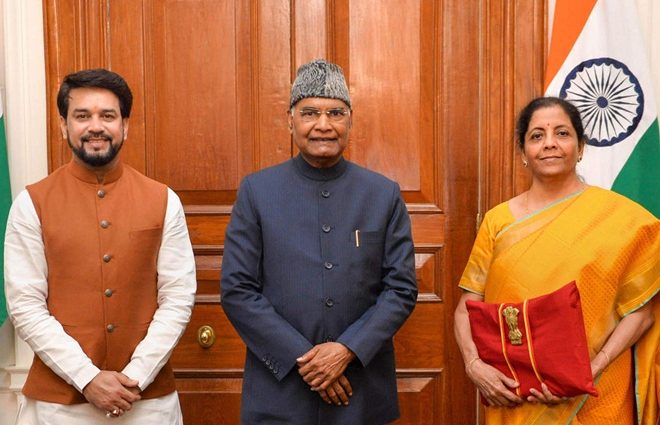TLI Staff
New Delhi: Hours before an action-packed Monday when Finance Minister Nirmala Sitharaman will present Union Budget 2021, speculations are running high over levying a Covid cess on the super-rich.
The imposition of cess is being seen as the best choice to bridge the revenue deficit. The move may also help the growing inequality and redistribution of income which has been accumulating in the hands of millionaires.
While millions of workers and professionals lost their jobs and continue to struggle to earn livelihood, the rich has got richer during coronavirus pandemic. As per an Oxfam report, Indian billionaires increased their wealth by a massive 35% in the last 10 months.
An International Monetary Fund (IMF) report had earlier favoured taxing the wealthy to close the growing gap between rich and poor.
The market-watchers also expect the FM to increase tax on long term capital gains from equity. The idea may not be bad given the stock markets have been seen massive investor participation in the recent weeks sending the share prices soaring.
As per industry estimate, profits of listed companies have risen almost 32% in the last one year.
While tax rates for the rich and wealthy could go a tad higher, there is expectation that allocation for social sectors such as health and education would be raised to support the weaker section of the society.
An Assocham-Primus Partners survey covering more than 550 participants, 39.7% respondents said healthcare would get the highest priority in resource allocation and policy support in the face of the country braving the once-in-a-century global pandemic.
Manufacturing emerged as the second most important sector, with 14.7% respondents expecting it to receive the Finance Minister’s attention, followed by MSMEs (11.4%), real estate (10.7%) and infrastructure (9.6%).
Delhi-based traders group Confederation of All India Traders (CAIT) expects that traders could be included in the 25% income tax slab at par with the corporate sector. It also hopes that Finance Minister Sitharaman would announce further simplification of GST and reduce the number of licenses required for traders in order to improve ease of doing business.
“A National Trade Policy for Retail Trade, E-commerce Policy with a Regulatory Authority and Voluntary Disclosure Scheme (VDS) with an assurance that no one will be questioned to bring alleged hidden trade into the mainstream of trade and commerce may also figure in the Union Budget,” said CAIT Secretary General Praveen Khandelwal.

